Mules of Fortune by Samuel Kolawole (Part One)
 TOLBERT
TOLBERT
Rebels pounded on the front door of his parent's shack, cursing and shouting, “We know you are in there!” and proceeded to smash the door down when no one answered. Once, then twice, the blade of a machete chopped through the plank door and retreated with a force that produced a dismal screech. Screws and nails flew off. The door leaped against the door frame and hinges. Light from the rebel fires outside sprang through the chinks into the darkness of the room.
Tolbert covered his ears to shut out the grating butchery of the door, perspiring and shaking like a wind-buffeted tree. Warm, pee trickled down his legs, flowing into the pool of urine already on the floor. He clenched his jaws to muffle his own sounds but instead his teeth chattered with the compulsive shivering of his chin. So great was the tremor in his body, his teeth pierced through his lips and salted his saliva with blood. Tolbert's mind groped for meaning and tried to ward off the fright assailing his soul like hordes of demons. His father and his mother, who was heavy with a child, were outside. They had told him to hide under the spring bed while they searched for a safe escape route. He heard mama screaming. He had been able to make out her voice even in the midst of the pandemonium. Until now, he had never heard mama scream, not once.
Mama had learnt to bear her burdens and shoulder her responsibilities in quietness, concealing her pain. What was happening now was greater than what she could bear.
The lock burst and the wreck of a door collapsed inward. Two boys with naked upper bodies bespattered with blood entered, machetes in their hands. They couldn't have been older than Tolbert. They were dressed in shorts and wore no shoes, their faces gaunt and hair matted with tiny twigs and dry leaves. One of them had a swollen eye, red and crusty with pus. They pulled the shaking Tolbert from under the bed through the piss and dust, and dragged him out into the open, his feet kicking in a futile struggle.
Phebe County was filled with people scampering and screaming. The conflagration of torched buildings billowed thick dark smoke towards the heavens and also flung well defined shadows bounding to and fro, blending, figures brightening and fading as they moved; There were ghostly male figures lugging off their trousers and rocking their buttocks over pinned bodies, forms leaping in a final dance of death, engulfed in angry flames before falling to the ground, machetes choking out prayers of repentance offered on trembling knees, sorely contorted forms still twitching, bayonets impaling bodies as though they were watermelons, staccato bursts of gunfire ripping the air. The reason for Mama's screams was known to Tolbert as soon as he was dragged out. He saw Papa lying on his back, one arm doubled under him, the other limp across his body. Blood oozed from the back of his head in a halo that widened with each passing moment. It was as though the blood seeped out of the ground itself, from an endless source.
Mama was on the ground too, seated in the dust with her legs splayed. Her face, glistening and swollen with tears, turned upwards and her arm stretched out as if she were trying to stop her husband's departing ghost from drifting to the point of no return. Again, a scream broke out from her throat, and she began to rock back and forth. The executioner, an adult with unkempt dreadlocks, and a pair of worn out tennis shoes, lumbered toward Tolbert, the murder weapon, an AK47, slung across his chest and crouched to face him. Tolbert was wedged between the two boys, transfixed.
“We making yor a big boy! Yor fighting for great Mr. Rasanga,” Rasta said as he thrust his face at Tolbert, his blistered lips parting in a crooked smile. What wafted from his mouth could pass for the stench of a pit latrine but Tolbert hardly perceived the odour. His sense of smell was numbed just like every other part of his body by the shock. Rasta tossed Tolbert this way and that, scrutinizing him as though examining a chunk of beef in the abattoir to determine if it had more meat than fat, then pulled him close.
“You expecting baby brother soon, eh? Or baby sister? Yor Mama belly big, eh” Rasta asked.
Tolbert did not answer him. He simply stared. Rasta reared back and slapped Tolbert's face. Pain surged in his head. Fresh blood filled his mouth, seeped out and dribbled down his jaw.
“Baby brother or sister?” Rasta asked again.
“I na know s-sir.”
“You na know?”
“Ye- yes-sir.”
“Then we go know, man! We go know!” Rasta said aloud as though announcing it to everyone. With brisk movements, half a dozen boys assembled, murmuring excitedly. The boys fished out crumpled dollar notes from their pockets and began to gather their bets, flipping them to the ground. Those who didn't have money supplied looted wristwatches, crocodile skin wallets, necklaces, pens, little wraps of marijuana. Three of them broke out of the motley group. One of these three whipped out a dagger from a filthy rucksack in his hand then handed it to Rasta. The other two pounced on Mama and pinned her down. Mama twitched from side to side, her legs stabbing the air like a ruminant trying to escape the knife, shouting Tolbert's name. Tolbert wriggled out of their grip and leapt forward, bestirred by the prospect of his mother's annihilation, but was restrained.
The disembowelling procedure was quick, as though it had been mastered. Blood gushed: deplorable scream rent the air. Tolbert was made to watch his mother go under the knife. His face turned away to avoid the horrendous scene but was wrenched back and held still. With one hand, Rasta pulled out a blood soaked, unborn infant, limp and lifeless and the boys cheered. Mama, half dead, gasped and foamed at the mouth, muttering something deep and guttural. The moment of decision came. Rasta calmly raised the finger of his free, bloodied hand, made a gesture with it in the air and laid it on his lips. The boys kept quiet. For a few moments they waited intently for his pronouncement with eager faces like tail-wagging mongrels.
“A girl! It's a girl!” he roared finally and the boys hollered. Immediately those who won the bet scrambled for the stuff on the ground. Clawing fingers struggled to pry away the precious reward as the urchins pushed and kicked and raised dust and laughed. Tolbert doubled up and retched. Again the boys roared in laughter, making silly faces. Tolbert's head spiralled in sickening loops. A new feverish tremor shook his body. A gust of air blew across his face and all objects in his physical world seemed to vanish, leaving him enveloped in darkness.
Tolbert came around to hear the grumbling of a truck engine, birds chirping in their nests, the sounds of insects and the stirring and crunching of leaves as the company crushed their way through thick undergrowth.
Rasta's name was Captain Tennis Shoes. That was not his real name. No one answered to their real names; everyone had a special name. They preferred names of people in American movies. Names like Junior Rambo, Captain Schwarzenegger, Tarzan, Admiral Stallone, Chuck Norris Baby. The boy with the swollen eye, one of the two that pulled Tolbert out of his house, was called Chuck Norris Baby. Chuck Norris, the Hollywood actor. Chuck Norris, his hero. Chuck Norris, the man whose footsteps he earnestly followed.
Chuck Norris Baby got his bad eye while trying to fight like Chuck Norris with a boy called Black Jesus. The scuffle, which ensued over food ration at a Small Boys Unit Base, resulted in a gladiatorial fight. In the fight, a rod meant for Chuck Norris Baby's skull damaged his left eye instead. When General Goggles got wind of the incident, he asked them if they had applied herbs on his wound and gave him a shot of gin. He said it was good for the eyes to be single. He said a one-eyed man will spot the enemy better.
General Goggles was the commander of the Small Boys Unit Base in Thambo County. A cadaverous man in his thirties, dark as charcoal with a deformed right shoulder, which was a trifle higher than the left, General Goggles got his name from his dark spectacles. He never removed his glasses in the open. He was the only soldier in the base with a camouflage uniform, the only soldier allowed to wear one. He talked a lot too and always wore a big crucifix. He seemed to always have something to say about everything and demanded that people listen to him.
The County where the Small Boys Unit Base was located could no longer be called a County. It was now a mere clearing of bricks, beams buried in earth and overgrown with turfs of brown moss and grass, The only thing standing was the school.
Also, to call the charred, crumbling structure covered with tarpaulin, which served as Commander Goggle's administrative centre, residence, and the armoury, a school would be cynical. The remaining members of the unit lived in tents made of duct taped rags and sticks or in the open. Graffiti in severe characters of black and red defaced the cement walls of the school structure stating:
Small Boys Unit, General Goggles Special Forces
Up Mr. Rasanga, Up Republic of Wahala No Rasanga, No Republic of Wahala
So so suffering in Republic of Wahala
Even in heaven, God have an army
War business hard but woman business sweet
Captain Tennis Shoes will debidieyor if yor mess with him
Battlements of stacked sand bags with a slot in the middle for a heavy machine gun stood in front of the building. The dusty road that led to the base had two checkpoints a few meters apart. Tiny strips of ragged cloth flanked on each side by sticks and rusty metal containers for armed sentries to sit on, marked the roadblocks.
“The bad government soldiers kill yor people not we. They are the ones provoking. They are the ones suffering this country,” Captain Tennis Shoes said to the new boys and took a long drag of marijuana. He released the smoke in measured puffs, his eyes flaming like red coals, coughed and continued his lecture. He went on about death and revenge and corrupt government. The words rolled off his tongue like barbed arrows.
The boys, about eight of them, were sitting on the grass, some with their knees drawn against their chins, others sitting on their folded legs.
Close to the Commander's house, a group of boys huddled around a radio alternating between static and voice, its two wire transmitters stuck out like the antennae of a cockroach. They also smoked marijuana and bobbed their heads to loud rap music. Not too far away, some boys were hopping, crawling on all fours and somersaulting while an adult soldier rapped out orders. Two boys squatted over a heap of rubbish that stood close to wretched clothes hanging on clotheslines, their shorts drawn down over their knees, their rifles hung on their shoulders. They chatted and fiddled with their guns as they dropped their excreta.
Two scrawny girls with transparent tops and shaved heads, the commander's wives, stood in one of the doorways of the building, leaning on its decayed doorframe, observing the activities around them for the want of something to do. The rest either lounged about fingering their rifles or played cards or slept on wafer thin mattresses lying around.
Tolbert was seated amongst a group of boys being addressed by Captain Tennis Shoes. What came out of the mouth of the Captain was a mere movement of the lips. Tolbert's brain often reeled and visions flitted before him. Since the night of the grisly occurrence, Tolbert seemed detached from his physical world. He acted like a ghost, observing his environment without participating in it. He was mostly quiet, except when his head twirled and he saw things. Then he shouted and cried. Apart from that Tolbert hardly cared about anything else. He hated no one, even though he had every right to. Or rather he was not in the condition to hate. He made no enemies. He just didn't care. Not about the opium they forced them to smoke to numb their feelings or the meal mingled with gunpowder which they said would make them strong or the stripes he received from Captain Tennis Shoes for failing to learn how to take guns apart and put them back together or Commander's Goggle's growing interest in him.
Commander Goggle spotted Tolbert during their first parade as new recruits of the Small Boys Unit and since treated him specially. He said Tolbert resembled his long lost son, Thomas and named him John the Beloved after Jesus' favourite disciple.
Captain Tennis Shoes was still speaking when he was interrupted by a boy who came with a message from the Commander.
“Tolbert, Commander wants yor!” Tennis Shoes said after receiving the message. A black cloud of anger twisted his face. The interruption of his lecture was not what really annoyed him but Tolbert's association with the Commander. Tolbert a new boy, with no record of a slaughter, who had not fired a shot or fought in combat. Captain Tennis Shoes had known nothing but fighting and killing since he voluntarily joined the unit years ago and risen to become a superior officer. Captain Tennis Shoes saw the situation as one that could undermine his influence in the camp. For that, he hated him.
Commander Goggle was seated in the big brown sofa of his room, wearing only his camouflage trousers, when Tolbert walked in. The room was cluttered, dark and musty.
“Ah, my Beloved John, sit down!” he said, revealing teeth that were rotten black, teeth that would have at least been brown, had marijuana and opium allowed it. Commander Goggle filled Tolbert with stories and conjectures and how he reminded him of Thomas. Tolbert said little and pretended to be attentive, nodding.
He kept the Commander's company for the rest of the day, even when the soldiers gathered together at dusk to smoke marijuana and drink palm wine and play War Games to amuse themselves. He made Tolbert sit beside him while they watched this strange and macabre pastime.
Drums rolled as the boys engaged in acrobatic displays amidst cheers and shouts. They lighted sticks with fire and snuffed them out by putting them into their mouths. They took sharp machetes and swallowed the whole length of the blades up to the hilt then pulled them out again. The soldiers then went further to test how resistant their bodies were to bullets: Soldier A pointed his rifle at soldier B and shot him. Soldier B staggered around for a while as though drunk, then stood triumphantly with his hands on his hips as the audience applauded.
Lubanga, an itinerant witchdoctor and supporter of the rebel forces known throughout the region for his powerful magic and wickedness, always stayed close to the performers to gloat over the efficacy of his charms or quickly come to the rescue in case of any mishap.
Lubanga himself carried out the final act. He roamed around in circles for a while, leaping and chanting and shaking the gourd in his hand and then dragged someone out and stretched him over a mat. After a few moments of uttering incantations and casting spells, the subject sank into a profound slumber. Lubanga then pulled the boy's tongue out of his mouth and shredded it to pieces with a blade produced from a bag hung around his neck, throwing the bits this way and that like a farmer sprinkling seeds. The boy plunged into a terrible fit, foamed in the mouth, blood, saliva and all, his convulsion gradually ceasing till he was completely still. He then covered the subject with a dirty piece of cloth, said more incantations, danced round for a while and then removed the covering to reveal the boy and his brand new tongue to the amazement of the crowd. The crowd was always amazed at this last act. It always meant something new to them anytime it was done. Maybe it was the way they wanted the nation to be: shredded, completely destroyed, and then brought back to new life.
Tolbert continued to stay close to the commander, away from the reach of Captain Tennis Shoes. Because the commander hardly engaged in combat, even on the battle ground, Tolbert was exempted from fighting. All he did was to carry guns and ammunition. Although Tolbert was excused from shooting, he participated in their killings in a way. He strutted through the deserted streets, strewn with dead bodies and feasting vultures. He watched them hide behind bullet scarred buildings to lay ambush for the enemy and then slaughter them like chickens, without thinking or reasoning. He watched them cut out an enemy's heart and pass it round the base like a long coveted soccer trophy before cooking and eating it. He had been ordered by the commander to partake of that meal once.
“It's a strong charm. When you eat their heart, the power in them is yors. You become strong, you become unkillable. A general's heart is the strongest of them,” Commander Goggle told him.
The charms did not make Black Jesus immune to death. A shell exploded close to him during combat, hurtling shrapnel in every direction, some of which tore his head off. Chuck Norris Baby and five other boys also perished. They were machine-gunned down while patrolling in one of their looted, jalopy trucks, carrying an RPG 7 grenade launcher. Chuck Norris didn't die immediately. He was taken to camp and fed with roots and herbs that made things worse. His blood turned black and leaked through his ears and nose. The one-eyed boy died with his mother's name on his lips. Nobody knew who his mother was. Chuck Norris was the only one buried in the base. The rest of the corpses were left on the streets for vultures to poke out their dismembered parts.
Like a child recovering from the petulance of not getting his way, Tolbert ignored the worries of the past and became used to the life of guns, death, and human hearts. The drugs also took their toll. The more he smoked and sniffed, the more he felt fearless, powerful and drawn to the evil around him. He began to see everything as a game and people as toys. He began to like the commander's company, began to relish the privileges he enjoyed from his association with him. Other boys didn't like him because he was special in the camp, but he was not bothered. Captain Tennis Shoes wanted him out of the way, but he was untouchable. The Commander taught him how to sniff cocaine and said he was free to sleep with any of his two scrawny girls. But he was too shy to touch the girls.
One night, Commander Goggle woke up from what appeared to be a nightmare and everything changed. He told Tolbert first about the dream.
“I saw Mary the mother of Christ. She was weeping hard. She heard the sufferings of all people in Republic of Wahala from heaven. I swear I saw her, I swear,” he said, tears tumbling down his face.
Things happened fast. The next morning he gathered everyone together, narrated his dream and talked about his new found faith. He sermonized on peace and repentance and judgment. He said they were going to fight for peace. New graffiti was added to the literature on the walls of the school building:
Hail Mary, mother of GOD, have mercy
on us, pray for us
Accept Christ today, tomorrow is late
We be soldiers of Christ
People thought the Commander had gone round the bend but they obeyed because he ordered them to. He announced a ceremony the next day where they would burn their guns and ammunition and take up bibles and rosaries. He said they would invite a missionary to supply them bibles and rosaries, establish a church and erect a statuette of Mary. Captain Tennis Shoes now regarded him as a traitor, but much more than that, he saw a golden opportunity to be the boss. Captain Tennis Shoes disappeared that night and came back three days later with men from the National Patriotic Front headquarters. They spilled out of a truck with broken windows and chassis riddled with bullets, shouting and cocking their guns.
Commander Goggles was ready for them. He embraced death with dignity. He offered no resistance. He told the boys not to cry for him, although they were not sure what he was talking about. For the first time in the open, he removed his dark glasses, before stooping to be decapitated. Captain Tennis Shoes, now in the seat of power did not forget to teach Tolbert a lesson he would always remember. At his order, the rebels set upon him and pinned his right arm against a slab of stone and an axe was wielded as desperate pleas turned to loud cries, then whimpers that ebbed away into stillness, along with his amputated arm.
A few weeks after becoming commander of the Thambo Small Boys Unit Captain Tennis Shoes acquired the new appellation General Bloodthirsty. He became ruthless in every sense of the word and was famous for it. Killing became both a duty and a pastime. The desire to take people's lives to him was more natural than peeing. When there was no enemy to slaughter, he picked on one of his boys. He made it look as though it was punishment for breaking the rules of the Unit. He called the offenders, traitors. He talked about the gravity of their offence even if it was something as trivial as blowing snot. So when General Bloodthirsty was not in battle, his boys sought traitors to place before him, as though offering sacrifices to prevent a furious god from striking and were in doing so saved from being one. Tolbert knew it was a matter of time before General Bloodthirsty picked him so he found a way to escape. (To be continued... See Part Two)
Mules of Fortune was written by Samuel Kolawole.
Copyright © Samuel Kolawole 2011.
 Samuel Kolawole’s fiction has appeared in Black Biro, Storytime, Authorme, Eastown fiction, Superstition review, Sentinel literary quarterly. His story collection The book of M will be in stores soon. A recipient of the Reading Bridges fellowship, Samuel lives in Ibadan, southwest Nigeria where he has begun work on his novel Olivia of Hustle House.
Samuel Kolawole’s fiction has appeared in Black Biro, Storytime, Authorme, Eastown fiction, Superstition review, Sentinel literary quarterly. His story collection The book of M will be in stores soon. A recipient of the Reading Bridges fellowship, Samuel lives in Ibadan, southwest Nigeria where he has begun work on his novel Olivia of Hustle House.


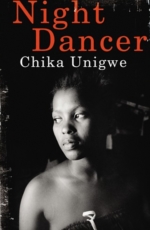

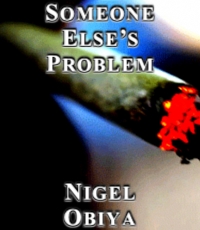

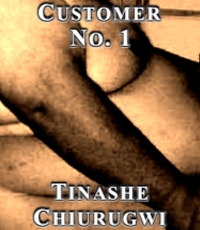
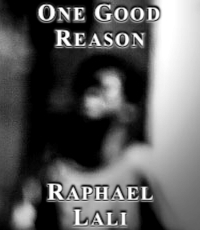
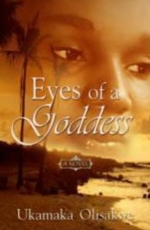

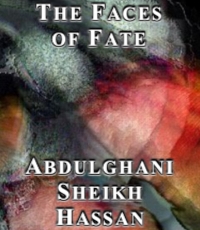

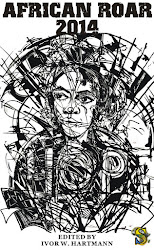
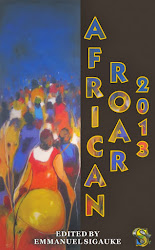
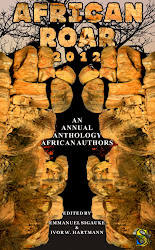

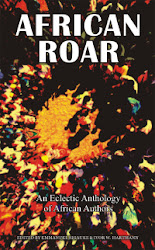

2 comments:
uhmm! engaging... the kind of story that makes you ask the question 'how did i get here (Africa)?' if Samuel continues like this, he might end up the toast of every writer, the delight of every reader.
Not bad at all. Vivid descriptions. I find some of the sentences too long though.
Post a Comment